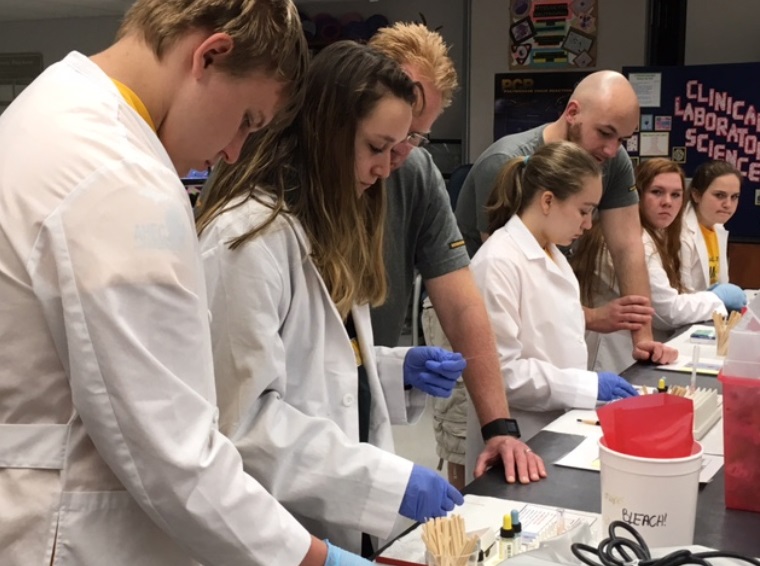
The Michigan Area Health Education Center, a program of Wayne State University that seeks to increase access to quality primary health care providers in underserved communities, marked its 10th anniversary recently.
Michigan AHEC was established in 2010 by Wayne State University and was funded through a grant from the U.S. Health Resources and Services Administration. Since that time, Michigan AHEC has worked to reduce disparities throughout the state by increasing access to health professional training programs, coalition building and strengthening health professions education pipeline and clinical education programs. The organization has since established five regional centers in Detroit, Mount Pleasant, Grand Rapids, Marquette and Houghton Lake.
Michigan AHEC was formed as a collaborative interdisciplinary effort between the Wayne State University School of Medicine and the Wayne State University College of Nursing. It is administered by co-principal investigators Tsveti Markova, M.D., senior associate dean for Graduate Medical Education and professor and chair of Family Medicine and Public Health Sciences at the Wayne State University School of Medicine, and Ramona Benkert, Ph.D., interim dean and professor at the Wayne State University College of Nursing. It is the only AHEC in the country that is jointly administered by a school of medicine and a college of nursing.
Michigan AHEC completed the full implementation of the AHEC Database Management System in 2015. The ADMS maximizes cloud technology to support the data management and HRSA reporting needs for the Michigan AHEC Program Office and Regional Centers.
More than 33,000 teens and young adults have participated in programming that exposes them to health care careers through enrichment, outreach and informational activities.
Michigan AHEC has helped more than 3,300 health care professional students perform primary care clinical rotations in rural and underserved communities.
More than 7,400 health professionals have participated in continuing educational programs to help meet the needs of practicing clinicians in underserved areas throughout the state of Michigan.
In 2019, Michigan AHEC was awarded a one-year $230,000 grant from HRSA that was used for workforce training activities to support opioid use disorder diagnosis, prevention and treatment. The funds were divided among Michigan AHEC’s five regional centers for activities that addressed unique aspects of the opioid crisis in their regions.
In June 2020, Michigan AHEC received $95,000 in CARES Act funding from HRSA. The funds are being used to enhance the infrastructure of three Federally Qualified Health Care Centers in Michigan and an academic training program on best practices to prevent, prepare and respond in the delivery of telehealth services to limit the spread of COVID-19.
The Michigan AHEC Scholars Program launched its third cohort. Since 2018, 82 health professions students from across the state of Michigan have participated in the program. The program is designed for health professions students from diverse backgrounds who are interested in supplementing their education by gaining additional knowledge and experience in rural or urban underserved communities.
Since Michigan AHEC was founded in 2010, it has received more than $1 million in funding from the State of Michigan. The funds helped launch the MIDOCs residency program, Autism Spectrum Disorder training, curriculum assessment initiatives and data collection on health care providers participating in the Michigan State Loan Repayment Program. Michigan AHEC also received more than $750,000 from the Kresge Foundation and nearly $9 million from HRSA.
During the last 10 years, Michigan AHEC has addressed the health disparities of rural and underserved communities by working to educate and enhance the well-being of the communities it serves.